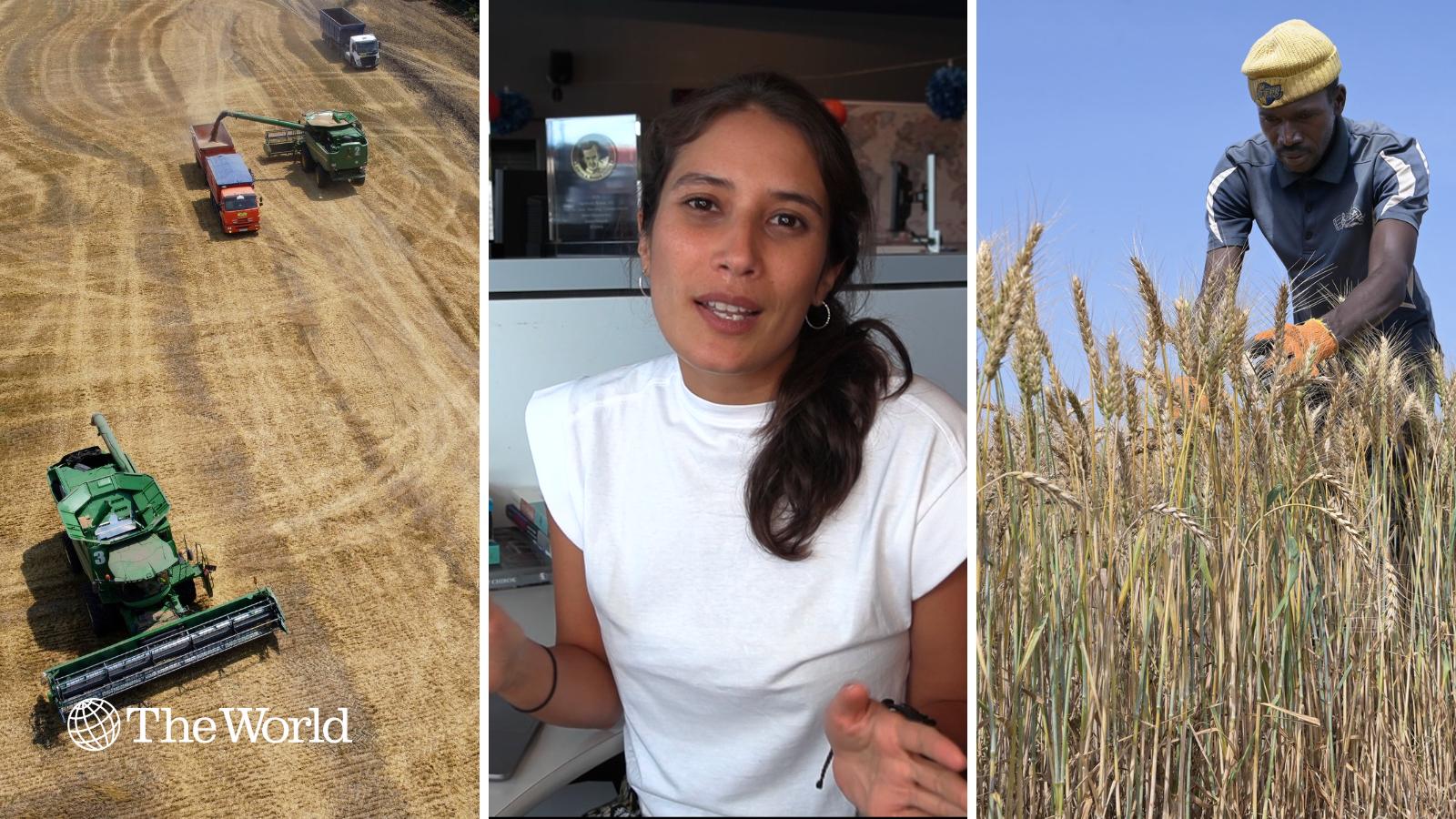VIDEO EXPLAINER: How the war in Ukraine is affecting wheat exports and food culture in Senegal
Left to right: Farmers harvest with their combines in a wheat field near the village Tbilisskaya, Russia, in July 2021; Tibisay Zea, The World reporter; A worker from the Senegalese Agricultural Research Institute is seen at work in a wheat field in Sangalkam, near Dakar, in April, 2023.
After the war in Ukraine started in February 2022, the global supply of Ukrainian and Russian wheat dried up, raising fears of a possible global food crisis.
At the time, the warring countries accounted for more than one quarter of global wheat exports.
Most of the wheat used in Senegal was imported from Russia.
Wheat, the second-most consumed cereal after rice, is an important staple in Senegal.
A good portion of that wheat went into making the hugely popular French baguette — Senegalese consume close to 10 million baguettes per day, according to Senegal’s National Association of Grain Importers.
Related: Is it time for Senegal to end its romance with the French baguette?
But Western sanctions against Moscow have meant that wheat importers in the West African country have had to look to other sources for the grain, such as Poland, Lithuania and Argentina — and pay higher prices for it.
In light of the war and rising prices, the national government subsidized the price of wheat to keep the consumer price of baguettes stable.
Russian agricultural products are subject to sanctions exemptions. But in practice, sanctions have created additional levels of complexity for shipping and insurance companies to get the supply of grains out to the global market.
Sanctions have also made it more difficult to convert payments from dollars to rubles.
The Black Sea Grain Initiative, brokered in July 2022 by Turkey and the United Nations, allowed Ukrainian grain shipments to leave ports in the Black Sea and through the Bosphorus Strait in Turkey for countries around the world.
Recently, though, Russia scrapped the breakthrough deal. And Ukrainian sea and river ports and other key infrastructure have been targeted with drones and missile strikes.
Moving forward, there is a lot of uncertainty about whether the Black Sea Grain Initiative can be restored.
While Senegal has been able to resume most of the wheat imports coming from Russia, and prices are slowly returning to normal, the crisis has raised awareness about the risk of being 100% dependent on other countries for wheat.
In the video above, The World’s Tibisay Zea explains how the war in Ukraine is shaking up a big part of Senegal’s food culture.
Related: Europe looks to Senegal for new energy supply. But what’s in it for the Senegalese?
Our coverage reaches millions each week, but only a small fraction of listeners contribute to sustain our program. We still need 224 more people to donate $100 or $10/monthly to unlock our $67,000 match. Will you help us get there today?
